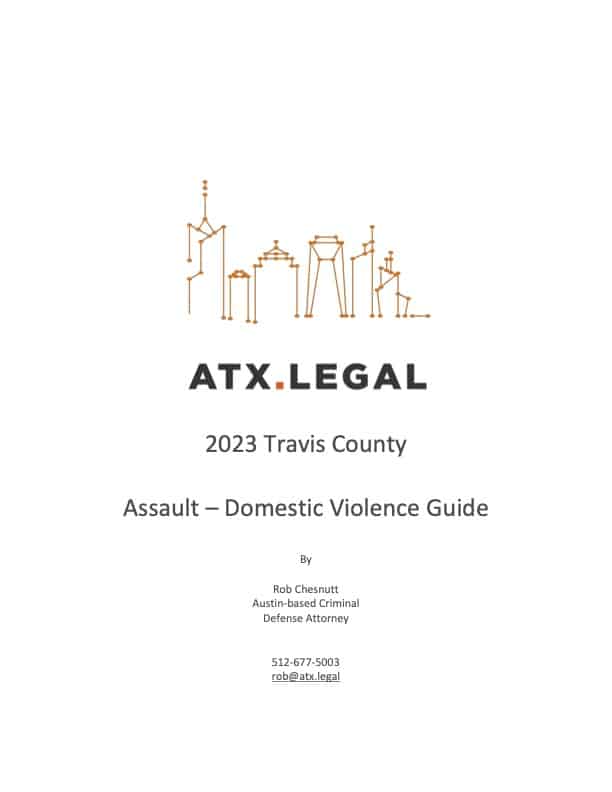Effects of a DV Conviction on Criminal History
There are a few unique characteristics that make DV cases difficult to deal with when it comes to a criminal history. The FV finding, discussed previously, cannot be waived, and applies to all convictions and deferred adjudications. This lasts forever, as do all entries on a person’s criminal history that are not expunged or sealed. Below, I will discuss a little bit about what a criminal history is, and then go specifically into options for FV cases.
Anatomy of a Criminal Record
A criminal record consists of 3 parts. 1) The arrest, 2) time spent in custody, and 3) the disposition. As soon as you are arrested, the arrest and jail time (if any) is shown on your history. The disposition will appear only after the case concludes. An expunction or order of non-disclosure is available only if your cases are disposed in certain ways.
Under current law, if not expunged or sealed, the record of arrest and/or conviction will remain on your record forever.
Expunction
An expunction means that your criminal record is literally destroyed. No one should be able to find it, and you are legally permitted to deny that the arrest ever existed. It does not happen automatically. You must petition the court. I charge $1,200 flat fee for an expunction, which breaks down into about $400 court costs and $800 in attorney fees.
You can also have your expunction handled for free by the UT Expunction Project. The expunctions are handled by UT Law students under the direction of a licensed attorney. It is a very good program, but the downside is that you may have to wait, as they only do expunctions once or twice a year. See the Link below for more details.
An expunction is available only after a waiting period for the duration of the statute of limitations. However, the prosecutor can waive this waiting period in some cases. Once filed, the agencies that have records relating to the arrest, but destroy them or send them back to the Court. They have up to one year to do so, but often comply within 4-6 months. Note that, as a Federal Agency, the FBI keeps arrest records and is not bound by Texas Expunction Law. However, they voluntarily comply with Texas expunctions, typically automatically. If you have had a case expunged, but the FBI still maintains a record, you can contact them to have it removed.
Expunctions are available for acquittals, dismissals, and successful completion of FVIP or Pretrial Diversion. Because of the stigma attached to an FV case on your criminal history, I recommend that everyone who qualifies for an expunction begin that process as soon as possible.
Order of Non-disclosure (Sealing) Not Available
Non-disclosures are simply not available in FV cases. In other types of cases, when you plea to a deferred adjudication, you can typically seal the record from public view once that is complete. Not so with Family Violence cases. It will stay on your record. Since the ability to seal is the main advantage of a deferred adjudication, and because it comes with significant disadvantages, I don’t usually recommend it to clients.
Download the free PDF Guide by clicking the image below:

